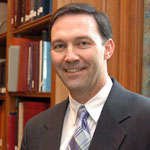Commentary on Psalm 29
Psalm 29 is a hymn that praises God as ruler of the universe. Like other hymns, this psalm begins with a call to worship (verses 1-2) and then identifies divine qualities and attributes that justify that praise (verses 3-10). Unlike most hymns, however, Psalm 29 calls heavenly beings, not humans, to worship (verse 1). The expression “heavenly beings” may refer to those who attend God’s throne (as in Isaiah 6). More likely, however, the expression refers to the gods of the Canaanite pantheon. These gods exist, the psalmist believes, but their role is merely to do the bidding of Israel’s God. Thus, the psalm calls on them to render praise to the LORD (see also Psalm 82).
This interpretation arises from the fact that Psalm 29 is an adaptation of a Canaanite hymn that praised Baal as the great storm god. Baal was a fertility deity, thought to bring rain that caused crops to flourish. Psalm 29 declares that Israel’s God is the true master of storm and rain and is the only one who has power to help human beings. Nevertheless, the psalm does not just present Israel’s God as more powerful than Baal.
The LORD is also profoundly different from Baal in at least two ways. First, Baal was of the same substance as the elements he ruled over; he was “husband” to the earth, and the rain represented his seed that fertilized it. By contrast, the LORD is separate from the creation though the creation gives evidence of his might. Second, while Baal mainly provided material wealth, the LORD mainly seeks “peace” (shalom) which includes justice and righteousness (verse 11). Thus, the LORD’s action for humankind ties directly to expectations for humans to treat each other rightly.
The personal name for Israel’s God appears in every verse of the psalm except verse 6, and thus marks one of the most important words in the psalm. Most English translations render the term with the word LORD because the scribes who preserved the Hebrew text placed vowel points under the word that signaled the common term Adonai, meaning “lord” or “sovereign.” The practice of replacing the divine name with another word showed reverence for the name. Originally, however, the name was probably pronounced Yahweh, a causative form of the verb meaning “to be” or “to happen.” The name probably meant something like “he causes (things) to happen” or “he brings into being.” Thus the name originally identified Israel’s God as the Father of all things, the creator and chief among all powers in the cosmos.1
In Psalm 29 God acts mainly through God’s voice (verses 3-5 and 7-9). The powerful and active nature of the divine voice is apparent in the verbs that describe its impact: “breaks”; “makes to skip”; “flashes forth flames”; “shakes the wilderness”; “causes to whirl”; and “strips the forest”. The psalm says the voice of God masters the waters (verses 3-4). This language portrays God as lord of creation, the one who rules over the chaotic and untamed elements. God’s voice also governs the wilderness, another part of the untamed world.
Finally, God’s voice dominates Lebanon and Sirion (verse 6). These two names probably represent lofty and proud areas of the world. Lebanon, with its lush forests, represented wealth and luxury. Sirion is another name for Mount Herman, the highest peak in Israel (Deuteronomy 3:9). God’s voice sends these two mighty places skipping like a calf out of the stall. Thus, the voice—of the God known by his ability and willingness to act—shows God’s ability to act on behalf of God’s people.
We should understand the descriptions of God dominating and devastating the non-human world in the context of a world in which Canaanite religion flourished. Psalm 29 declares that Israel’s God is not like Baal and other ancient Near Eastern deities who had to battle the elements (often personified as gods) for control of the world. Rather, Yahweh stands above and apart from the creation and suffers no threat from it. The fact that the psalm does not include any reference to battle indicates that God does not have rivals (as did Baal, Marduk, and other ancient gods).
Another key word in the psalm is “glory.” In the context of Psalm 29, the word has a two-fold meaning. First, it connotes the sum of the LORD’s attributes of power and majesty that the Psalm celebrates. The label “God of glory” (verse 3) is a unique title that suggests power characterizes God (as verses 3-9 describe; see the similar expressions “king of glory” in Psalm 24:7-10). Second, glory refers to the manifestation of God’s royal power in natural phenomena such as the storm and to the worshipful response of God’s subjects. The knowledge of God’s majesty in natural phenomena is especially associated with the worship of the temple. So, while God’s might in the storm is evident throughout creation (Isaiah 6:3), it is experienced and celebrated in the place of God’s earthly throne. Thus, verse 9 declares, “in his temple all say, ‘Glory!’” (see Psalm 66:2).
The notion of the glory of God as a tangible manifestation of power appears clearly in John’s gospel. John identifies Jesus Christ as the glory of God, the power of God revealed to humankind (“we have seen his glory, the glory as of a father’s only son,” John 1:14). John links the glory of Christ closely to his baptism, and the synoptic Gospels likewise present Jesus’ baptism as a revelation of his cosmic role as God’s servant who ushers in the kingdom of God. Psalm 29 provides an appropriate backdrop for the truth that at his baptism Jesus appeared as the bearer of God’s glory (Matthew 3:13-17; Mark 1:9-11; Luke 3:21-22).
Notes
- Frank Moore Cross, Canaanite Myth and Hebrew Epic (Cambridge, Mass.: Harvard University Press 1973), pp. 65-69.


January 9, 2022